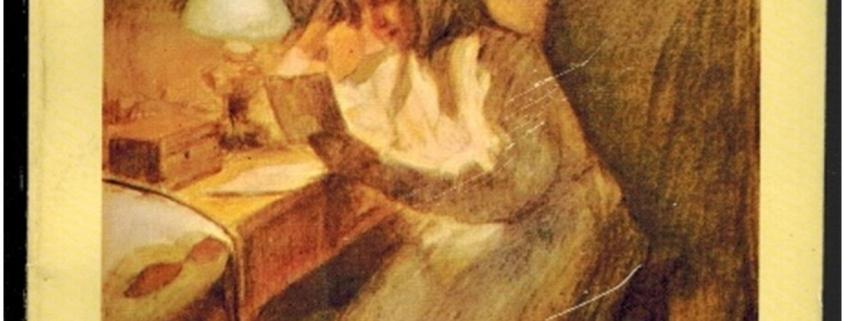Warden’s blog – Tolstoy’s ‘Resurrection’
The thing about great literature is that it is timeless. I read a lot but I rarely reread a book… in fact the only novel I can think of that I have reread purely for pleasure is A Tale of Two Cities by Charles Dickens, with that awesome opening, ‘It was the best of times, it was the worst of times…’ Is that the greatest opening to any novel? Find it and read the first paragraph. Recently I mentioned to someone that one of my favourite novels, certainly in my top 5, is Resurrection by Tolstoy…then I found myself in town and I decided to go into Hodges and Figgis and buy a copy and reread it. I must have read it 25 years ago at least and I remember it having a profound effect on me, so I bought it, came home and tucked into it…and immediately the extraordinary and haunting story, that grabbed me all those years ago, came back. But what struck me even more was how very topical the story is. The setting is 19th century…the theme is 2022. What did I say about great literature?
The story tells of a Russian landowner who is a decent sort at the start of the book. He has a teenage romance with a maidservant at his aunt’s house when still young and it is delightfully portrayed. Their innocence and naivety is touching. He then doesn’t see her for three years and in that time he joins the army, becomes tough and worldly, starts drinking hard, and becomes a womaniser and a pleasure-seeker. Then he happens to visit his aunt again and the girl is still there, still innocent and overjoyed to see him. He is also excited but by now he has a different use for girls like her and he forces himself on her, despite her protestations. The next day he gives her some money and rides away.
Ten years later he has become a big figure in his neighbourhood. One day he is called up to do jury service and the first case of the day is a murder trial and, to his horror, he recognises the woman on trial as the girl he raped. Her life had gone downhill from the moment he last saw her…she became pregnant, got dismissed, had to beg for food and started to drink to escape her dismal reality. Eventually she turns to prostitution and when the landowner sees her she is being accused of the seedy murder of an abusive client. When he realises what has happened to this lovely innocent girl, and how it all started with his callous abuse of her, he is so horrified by the consequences of his behaviour that he vows to spend the rest of his life seeking redemption.
Resurrection was written 120 years ago, but it speaks to us in a way that is so relevant today. Is it not addressing what we would call ‘rape culture’ and consent, issues which we face today and perhaps in a far more deep-seated way? The sadness in the novel is that the protagonist changes from an innocent and decent young man, who looks out for others and loves the innocence of the girl, into someone who uses others to satisfy his own pleasure, regardless of the cost to the other person. In his case it was army life that changed him, with the need to fit in with his peers, the desire not to be different, not to stand out, to prove himself a man. Few young people go into the army now, so what is it in our culture that teaches young men to think it is okay to abuse girls, to demand what they want regardless of the feelings of others and assume that there will be no consequences?
Is it perhaps the fast-food diet of pornography and, with it, the normalisation of violent and abusive behaviour? The young man in Resurrection is between the ages of 19 and 22 when he starts to head down the wrong road, but I fear that many now are far younger than that when they have the same loss of innocence, at an age when they are ill-equipped to handle it. It is a hugely serious issue in my mind, but few people want to talk about it. Let’s face it, a generation of young people who don’t know what is appropriate behaviour in relationships has not appeared out of nowhere.
As for the effect of abuse on the victim, that is another whole narrative. So much dysfunction can be traced back to a trauma such as the one that Tolstoy portrays.
How did I get from Tolstoy to rape culture and pornography? Well, I said that great literature is timeless, because it tackles the real issues of the human condition. Tolstoy tackled it at the end of the 19th century and his writing was controversial, as you would imagine. But when you read the novel now, it addresses an issue that is surely even more real in our world and I am not aware of any great writer now who deals with it as powerfully and courageously as he did back then.
The ancient Greeks saw their poets as prophets, who called out the abuses prevalent in their world and called people back to the ‘old ways.’ Tolstoy too was a sort of prophet in the same mould, calling out the abuses that he saw in his Russian world 120 years ago. Are there any prophets out there who will do the same in our time?




